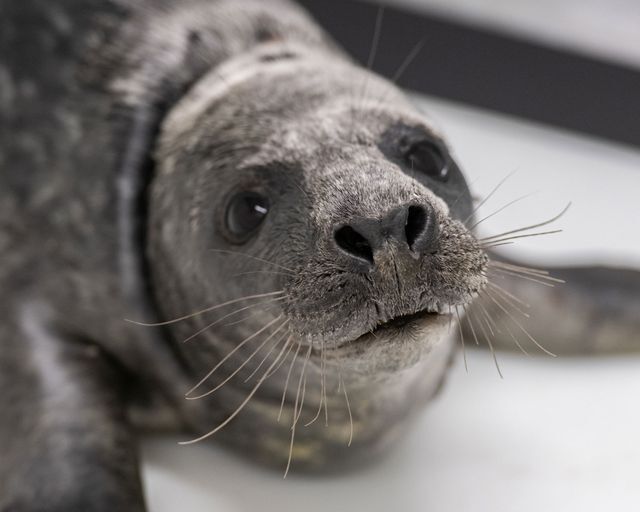
The National Aquarium in Baltimore would like you to meet Louis Armstrong, a maternally dependent grey seal pup rescued from the Assateague Island National Seashore last month.
Louis was brought into the aquarium’s Animal Care and Rescue Center on Feb. 26 after being found stranded and dehydrated with an infection from injuries to his face and left flipper.
The aquarium team estimated the seal pup is a Capricorn or Aquarius, having been born sometime in January. He weighed only 35 pounds when he was found, and would have been too young to survive on his own without his mom, aquarium officials said in a news release Wednesday.
Mr. Armstrong has since been successfully treated with antibiotics for his infection and has worked on his survival skills, like independent swimming and foraging for food.
“He is slowly warming up to the idea of getting comfortable in his splash pools and seeking out fish,” the release said. “Since a seal his age would still rely on its mother for nutrition, it is critical that Louis begin to understand how to find and eat fish on his own while in the care of our team.”
The aquarium and its partner, the National Oceanographic and Atmospheric Administration (NOAA), will release Louis back into the Atlantic Ocean once he weighs about 50 pounds.
Over the past several years, three maternally dependent seal pups have been admitted to the aquarium’s Animal Care and Rescue Center, which means grey seals could be establishing a colony, also known as a rookery, in Mid-Atlantic waters.
“While our Animal Rescue staff cannot say with any certainty where individual rescued seals are from, the establishment of a local rookery means we will likely see more seals like Louis Armstrong in our region,” the release said.
The aquarium is reminding the public that seeing a seal on the beach does not mean it is sick, it could only be resting. Seal rescue season in the mid-Atlantic usually lasts from early winter through May.
If you see a seal on the beach, do not touch or approach it and keep a distance of 150 feet. Note your location and the time of day and contact the National Aquarium’s Stranded Animal Hotline at 410-576-3880.






